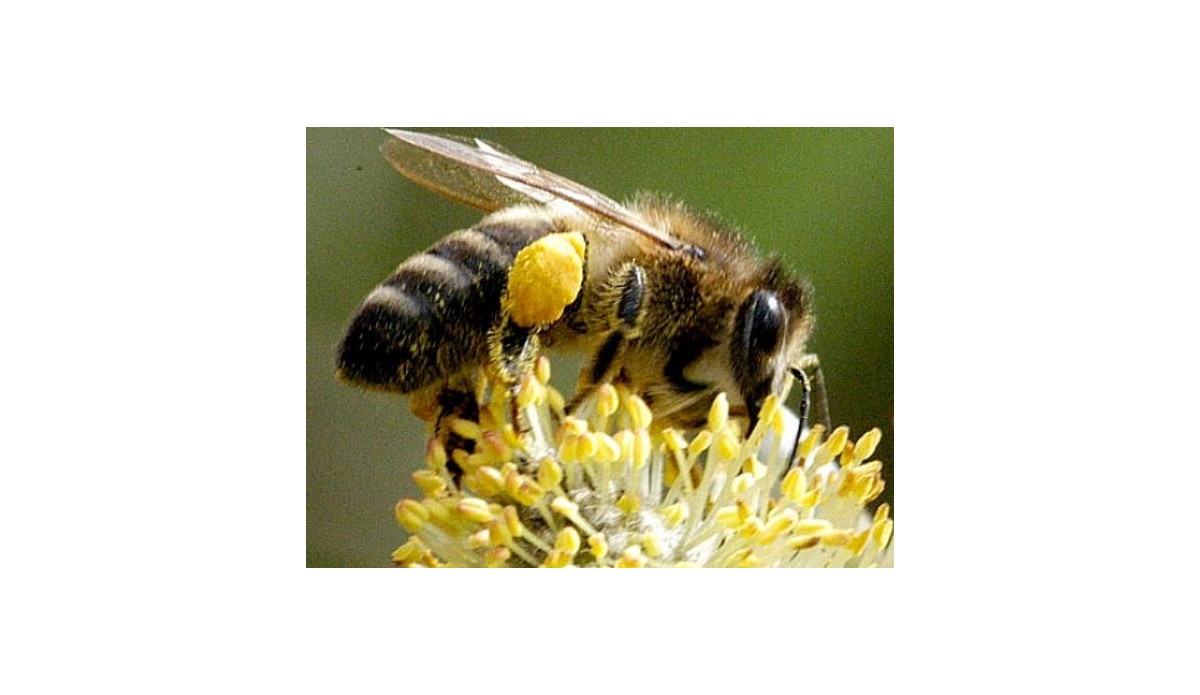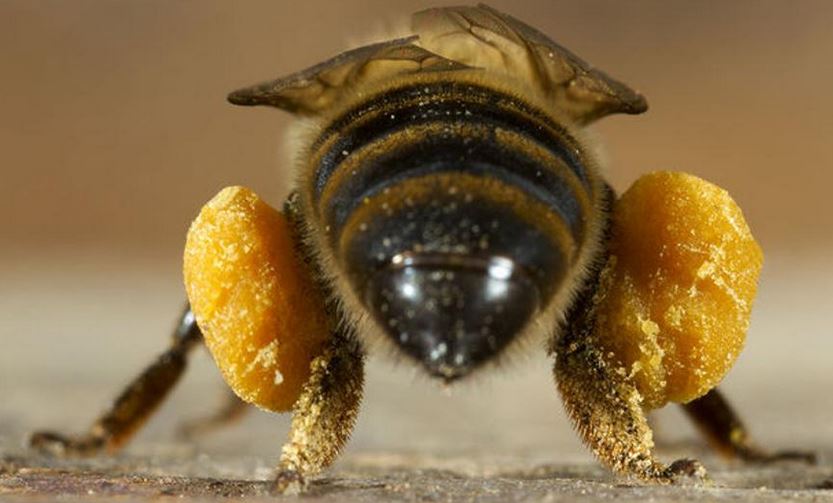Natural pollen collected by bees

Pollen characteristics and their properties
In this post today we would like to talk about pollen, how it is formed, what properties it has and why it can be so valuable both for the biodiversity of nature, for bees and for the people who consume it.
Small pollen grains are essential to fertilize and reproduce plant species and thereby continue the biological cycle with results such as fruits, grains, flowers or trees. The pollen is formed by very tiny microscopic spores with granites of a diameter of 0.05 millimeters. Can you imagine how many pollen granules each pollen ball has that has been collected by a bee? The answer is: 2,000,000 microscopic pollen granites.
To give us an idea of the effort that comes with bees collecting pollen, we will say that if a bee works for a month followed eight hours a day, it would only be able to collect 5 milligrams of pollen grains, that is, a simple tiny teaspoon..
Bee pollen is a food rich in protein. Compared by grams, we can say that pollen contains between 5 and 7 times more protein (specifically amino acids) than meat, cheese or eggs. 15% of the pollen is lecithin, a compound that can help reduce cholesterol and goes very well for the brain.
The pollen usually has a yellow color, although we also find brown, red and green pollen, and sometimes even black (depending on the plant or tree from which the pollen comes). Since pollen is such an important source of nutrients for hives, bees go from flower to flower to collect this valuable nutritive element.
The larvae of bees are large consumers of pollen, since they need vitamins, proteins, fats and mineral salts (a beehive can consume annually between 20 and 25 kg of pollen).
Many of us wonder, how is it possible for bees to transport pollen from flowers to hives? The bees first knead the pollen granites using the nectar and secretions of their buccal glands to make a uniform mass and be able to transport it on the hind legs.
Some of the plants and trees that contribute pollen to bees are, for example: sunflower, eucalyptus (Eucalyptus), chestnut, coscoja (Quercus sp.), Oak, oak, broom (Cytisus multiflorus), the poppy, the jara and the jarilla.
In this link you can see according to the type of plants, if they contribute to the bees pollen, nectar, or both.
If the beekeeper wants to collect the pollen that the bees are bringing to the hives, he can place the pollen catchers in front of the hive entrance, to force the bees to release the pollen grains when entering the hive. The pollen collected by the beekeeper in the pollen trap will undergo a dehydration and sieving process for later consumption or commercialization.
Normally, each pollen granule is composed of tiny granules of individual pollen of the same botanical species.
As we have said, a hive can collect between 12 and 40 kg of pollen per hive and year. The beekeeper who collects pollen through pollen-hunters must keep in mind that the bee colony is also a pollen consumer for its good health, development and proper functioning of the hive. Therefore, all pollen should not be removed, and a sufficient amount of pollen should be left for the bees themselves.
Pollen is composed, on average, of 55% carbohydrates, 35% protein, 3% vitamins (it has vitamins A, C, K, B1, B3, B5, B6) and minerals (with special mention of selenium, considered as helping the immune system and preventing tumors, inflammatory processes and cardiovascular disorders), and 2% in fatty acids (it has alfalinolenic acid). It also has flavonoids, carotenoids and phytosterols.
Thus, pollen is an excellent food for both bees and humans, being an excellent nutritional supplement and an apicultural product that, together with honey and royal jelly, can serve as a complement to the beekeeper's economic activity.
Mundoabejas.com team










Comments
No comment at this time!
Leave your comment